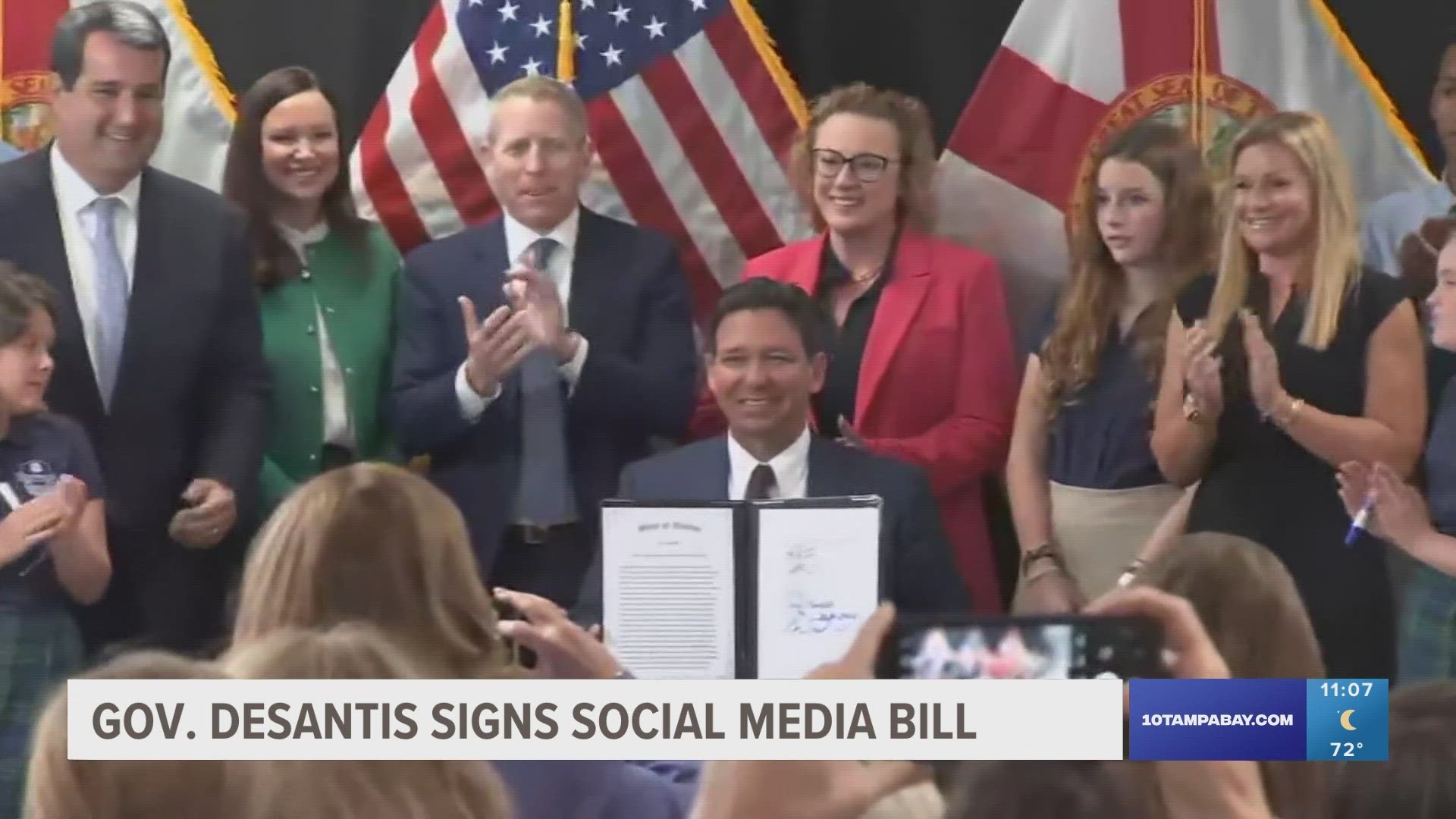TAMPA, Fla. — Gov. Ron DeSantis signed 25 bills on Friday. He signed a mix of bipartisan and Republican-focused legislation.
Here are the details on some of the bills he signed that will soon be enforced as laws:
House Bill 49: Waiving the limit for teen workers
This new law will keep a 30-hour workweek limit for 16- and 17-year-olds when school is in session, but parents, guardians or school superintendents can waive the limit.
The law will allow teenagers to work more than eight hours on Sundays and holidays even if school is the next day. Workers must receive a 30-minute meal break after four hours of work if they are working eight or more hours a day.
The House voted to pass the bill 76-33, while the Senate voted 27-11.
Anna Eskamani, D-Orlando, was one of the critics against the bill who called the bill ironic since earlier legislation passed would prevent people under 21 from working in adult entertainment establishments.
This was a Republican-favored bill with it passing mostly on party lines minus Rep. Mike Beltran, R-Apollo Beach, who voted against it with Democrats.
House Bill 533: DNA samples from inmates
This piece of bipartisan legislation goes into effect immediately requiring all Florida inmates who don’t already have DNA in the state’s database to provide a sample by Sept. 30.
State law requires many individuals who are arrested or convicted of certain crimes to submit samples, which go into a database for cross reference.
Rep. Tom Fabricio, R-Hialeah, and Sen. Blaise Ingoglia, R-Spring Hill, sponsored it, and lawmakers passed it unanimously. The goal is to solve cold cases in the state.
There are currently 20,315 cold cases in Florida from 1965 to 2022, according to data from Project: Cold Case.
Senate Bill 474: Exempting public records from people who died by suicide
Autopsy reports for people who died by suicide will be exempt under Florida’s public record law, according to the Senate Bill DeSantis signed into law.
Photos, videos and audio recordings of people taking their own lives will also be exempt. Surviving family members can still access the reporters, but people who want to request the records will have to obtain a court order.
The bill’s sponsor, Sen. Erin Grall, R-Vero Beach, introduced it because she had a family member who died from suicide.
At a Senate Rules Committee hearing, she said the legislation will “protect the family from the often gruesome and highly sensitive descriptions of the loved ones.”
Congress passed the bill unanimously.
“I think it’s our responsibility to limit the tragedy that suicide is,” Grall said.
Senate Bill 1526: Local regulation of nonconforming and unsafe buildings
Another bill that DeSantis approved was deemed as the “Resiliency and Safe Structures Act.”
The new law will make it easier for developers to demolish and replace old buildings if the building intersects or falls within the coastal construction control line and is either nonconforming with the flood elevation requirements for the area, ordered unsafe by local officials or ordered to be torn down by local government.
Buildings on the National Register of Historica Places, single-family homes and certain buildings within an area with a population smaller than 10,000 will be exempt.
It fully exempts the cities of St. Augustine, Key West, Palm Beach, Tampa, Pensacola, West Palm Beach and Panama City. It also exempts parts of Miami Beach such as buildings on Ocean Drive.
The bill, sponsored by Sen. Bryan Avila, R-Hialeah, prohibits local governments from restricting or presenting the demolition of certain buildings unless it’s necessary for public safety. Local governments can’t impose additional regulations or public hearings on permit applicants.
In a House session, Rep. Spencer Roach, R- North Fort Myers, said the goal is to prevent a tragedy like the Surfside collapse but Rep. Lindsay Cross, D-St. Petersburg, voiced her concern about the negative impacts it could have on oceanside communities including hurricane evacuation.
She said small businesses can be replaced by larger businesses, increasing traffic and making hurricane evacuation more difficult.
Rep. Linda Chaney, R-St. Petersburg, agreed and said, “It sounds to me that the bill’s sponsor has a local problem that he’s trying to force on our smaller communities.”

